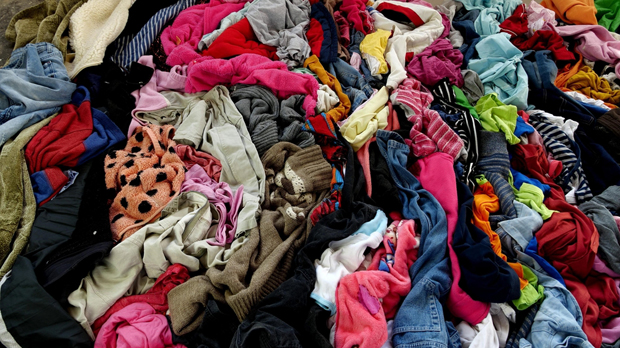
Europe's once-thriving textile sorting and recycling sector is facing an unprecedented crisis, surpassing even the challenges faced during the COVID-19 pandemic. Numerous global disruptions , including the war in Ukraine, logistical hurdles in Africa, and the relentless rise of fast fashion, has plunged the industry into a turmoil, leaving the industry struggling for survival and threatening to unravel years of progress towards a circular textile economy.
Issues of oversupply and falling prices
The crisis is characterized by a glut of used textiles and a sharp decline in demand from traditional export markets. Data reveals a shrinking trade in used textiles between the EU and non-EU countries, decreasing from 464,993 tons in 2022 to 430,185 tons in 2023. This decline is highlighted by Germany's exports of used textiles to Ghana, a key export market, which fell from 7911.2 tons in 2020 to 4532.9 tons in 2023.
Compounding the problem is the low demand for recycled materials. Global production of recycled cotton in 2023 was estimated at 319,000 tons, compared to 24.4 million tons of virgin cotton produced. This disparity highlights the uphill battle faced by the recycling industry. Oversupply has led to a drop in prices for second-hand textiles, while collection, sorting, and recycling costs have grown. Since spring 2024, the prices for sorted second-hand garments have fallen below processing costs, creating severe cash flow problems for sorting operators. Warehouses are overflowing, raising the specter of textile waste incineration.
The Netherlands for example, a leader in textile recycling, is feeling the impact acutely. Sorting companies are operating at a loss, with warehouses overflowing and the threat of incineration looming over unsold textiles. The Dutch government is considering emergency measures, including financial support and a potential tax on virgin textile materials, to avert a complete collapse of the sector.
A domino effect
The crisis is rippling through the entire textile recycling chain. Municipalities face growing processing costs, potentially leading to higher waste disposal fees for residents. Downstream players, such as tearing and spinning mills, are also struggling, resulting in significant job losses. Take German textile recycling company Soex for example, has reported a 30 per cent drop in revenues in 2024 due to the crisis. They are struggling to find buyers for their sorted textiles and have been forced to reduce their workforce. Similarly, the Belgian sorting operator, Terre, has seen its warehouse capacity reach limit. They are facing pressure to incinerate textile waste due to the lack of viable export markets.
Need for urgent action
Industry experts and policymakers agree that immediate action is crucial to prevent widespread bankruptcies and safeguard the future of textile recycling in Europe.
Short-term solutions include financial incentives. Many EU companies that contribute to a sustainable circular textile chain need immediate financial support to weather the storm. And targeted investment in recycling technologies and infrastructure is essential, particularly for municipalities grappling with textile waste stagnation.
Mid-term strategies include measures to increase demand for recycled textiles, such as mandatory recycled content in new products, are crucial. Europe also needs to significantly expand its recycling capacity to handle the growing volume of textile waste. And ecodesign requirements favoring sustainable materials can further incentivize the use of recycled textiles.
In the long term the EU's upcoming Circular Economy Act presents an opportunity to enshrine ambitious targets for textile recycling and create a level playing field for recycled and virgin materials. A future Clean Industrial Deal could provide further support for innovation and investment in the textile recycling sector. Taxation is another way. Governments need to explore the possibility of introducing a tax on new, petroleum-based materials and lowering VAT on textile repair, reuse, and recycling activities.
The stakes are high, and without urgent and decisive action, Europe risks undermining its climate goals and jeopardizing the future of its textile sorting and recycling industry. The crisis presents a critical juncture – a chance to reimagine and reinvigorate the sector, or risk losing years of progress towards a more sustainable and circular textile economy.












